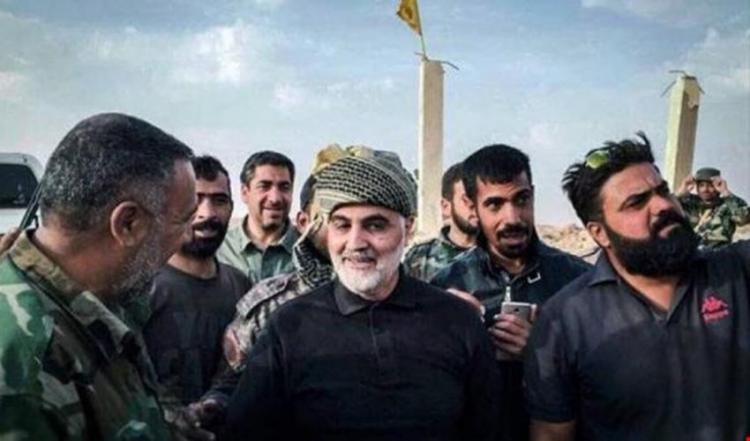Iranian affairs expert: Iran seeks to control four capitals, occupy Syria
Northern Syria – North-Press Agency
Since the start of the events in Syria in 2011, the Iranian forces have been working within their expansionist agenda to find a permanent place inside Syria, benefiting from their strategic and historical relations with the Syrian government.
Since the start of the events in Syria in 2011, the Iranian forces have been working within their expansionist agenda to find a permanent place inside Syria, benefiting from their strategic and historical relations with the Syrian government.
This Iranian move has come through direct military participation, whether in the field battles, or through military consultations, and by providing the Syrian government, its military forces and its formed groups which been transferred into Syria, with ammunition, equipment and members.
Ahmad al-Anani, who is an expert in the Iranian Affairs and the International Relations, told North-Press that Iran has an expansionist agenda in Syria, Iraq, Lebanon and Yemen.
He explained that the goal of Iran’s presence in Syria, is to make pressure on the United States, through the presence of the Iranian Revolutionary Guards which were stationed close to the Syrian Golan and therefore, to threat Israel, and to win the cake of the reconstruction of Syria.
Al-Anani added that Iran “has succeeded in renting a vital port on the Mediterranean, through which it can circumvent the sanctions”.
According to the expert in the Iranian Affairs and the International Relations, there is a US-Iranian conflict in Syria, especially that the US sees its presence in Syria as a prevention of the Iranian incursion in the country, and that its presence in the area of al-Tanf is to block the way in front of the completion of Iran’s dreams in establishing a land line near al-Bukamal in linking Iraq, Syria and Lebanon.
He also stressed on Iran’s intentions and endeavors in controlling Syria and “occupying it and then doing a demographic and cultural change”.
Al-Anani accused Iran of trying to control four Arab capitals to continue to occupy the Arab capitals, but he stressed that the US strategy of imposing sanctions on the banking and oil sectors has significantly limited Iran’s ambitions and managed to hit its strategic depth with its tools and arms in the region.
Al-Anani said that “the Iranian role in Syria will be curtailed, especially after a Russian desire to end the Iranian presence inside Syria.
This refusal was reflected in Moscow’s stance by giving the green light to Tel Aviv to carry out air strikes against Iranian military positions inside Syria and by agreeing to the refusal of objecting the Russian S-300 battery missiles, according to al-Anani who considered that “the honeymoon is over and it’s time for interests”.
It is noteworthy that the Iranian armed groups are located in different areas inside Syria, mostly around the western banks of the Euphrates river, in areas of southern Syria, and in the countryside of Damascus and Aleppo.

